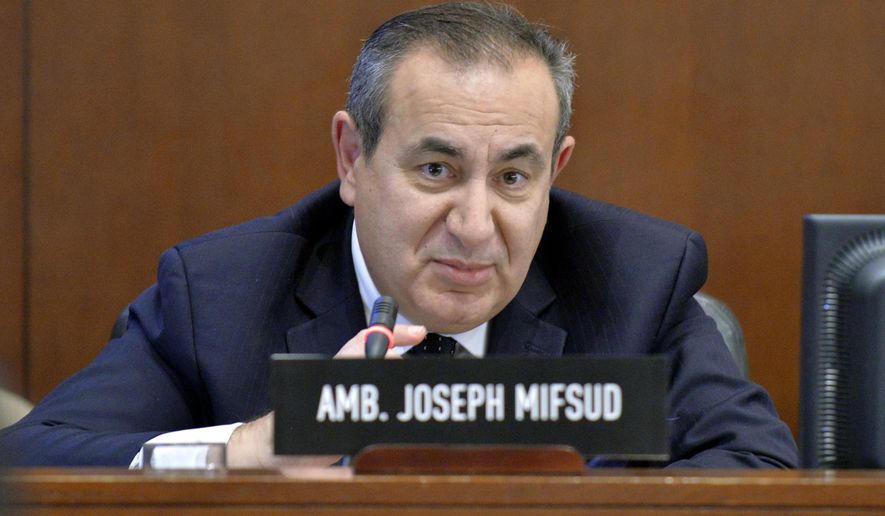ROME | Joseph Mifsud, the shadowy Maltese influence peddler who helped turn the 2016 U.S. presidential election on its head when he promised to help one of Donald Trump’s advisers find “dirt” on rival Hillary Clinton, may have resurfaced in Italy — just long enough to deny being a spy.
Mr. Mifsud last appeared in public in 2017 and since then his whereabouts and activities have been the subject of intense, widespread speculation, even drawing Attorney General William Barr and John Durham, the U.S. attorney, to Rome in search of information. He has figured prominently in claims by Mr. Trump and his allies that the “Russia-gate” controversy over alleged foreign meddling in 2016 was an elaborate plot to discredit Mr. Trump and undermine his presidency.
Whether the mysterious Maltese actually has surfaced is far from certain.
Corriere della Sera, Italy’s newspaper of record, said this week it received a recording of someone who claimed to be Mr. Mifsud. Voice recognition experts with the U.K.-based investigative journalism group Bellingcat said that, based on tone and pronunciation, the recording matched verified recordings of the 59-year-old part-time professor.
The clip begins with the caller stating the date the recording was made, Monday, and saying the person speaking is Mr. Mifsud. It goes on to say he has had “no contact with friends and family for a number of months” and that “it has been very difficult for me to live like this, without any human contact.”
The man behind the voice denied any connection to any aspect of the Russia investigation.
“It’s been almost two years to the day that this whole issue, the blown-up issue, has been presented to the world’s media and on a world stage — as if I had anything to do with the issue concerning the countries,” he said. He also denied any kind of insider role with any institutions connected to the controversy, for or against Mr. Trump.
“I try to bring one group in contact with another group,” the voice said. “Not, I repeat and underline, not anyone in any secret service, intelligence service, or anybody of that sort.”
If he did speak to any spies or intelligence officials, the man said, “I did not know this person or that person had any link with any [such] institution.”
The recording is short on details: The voice does not mention the Mueller report, where Mr. Mifsud is named more than 60 times. It does not mention George Papadopoulos, the former adviser to Mr. Trump who was found guilty of lying to the FBI — about the extent and significance of foreign contacts with the Trump campaign. And it does not mention Mrs. Clinton or former President Barack Obama.
Instead, the recording casts Mr. Mifsud as an innocent academic bewildered by the way his name has been used and eager to come out of hiding.
As such, it runs counter to the two main two narratives that have been applied to Mr. Mifsud since his disappearance in 2017.
Former special counsel Robert Mueller said that Mr. Mifsud could have ties to Russian intelligence, while many of Mr. Trump’s defenders have described Mr. Mifsud an asset of Western intelligence agencies recruited by allies of Mr. Obama in order to entrap Mr. Papadopoulos and undermine Mr. Trump’s candidacy.
“It’s very possible Mifsud does not consider himself a spy, but he could still be an asset for intelligence entities,” said Sabrina Magris, president of Ecole Universitaire Internationale, which focuses on security issues. “He’s an enigmatic figure who could have played multiple roles with or without being aware of it.”
According to Francesco Galietti, founder of Policy Sonar, a Rome-based political risk consultancy, Mr. Mifsud’s brief reemergence is unlikely to be the last chapter in his public story or for his connection to politics in the U.S.
“I think this means the story isn’t over,” Mr. Galietti said. “I think it also means it will reach its intended climax later, in the midst of the U.S. presidential elections.”




Please read our comment policy before commenting.